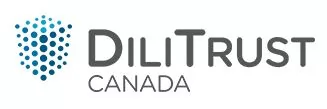Digital transformation has accelerated during the COVID-19 crisis, and it is revolutionizing the way organizations function in the long term, including their legal departments.
This transformation has led to legal departments addressing many entity management and budgeting rank challenges, among the top concerns.
Making time and progress are critical here. By identifying the strengths and gaps of a team, you can break through these barriers that prevent effective governance of corporate legal entities. Here are some tips on how corporate legal officers can overcome some of these challenges in their position.
What are the two barriers to corporate counsel success?
- Legal Entity Management
Legal departments must deal with a high volume of documents containing sensitive information. The administration of these documents in an orderly and secure system is essential.
- Budgeting
Legal departments maintain budgets to provide context for costs, forecasting, and improved decision-making. This should also involve legal entity management with financial documents, analytics and insights, and assumption tracking.
Therefore, as the Chief Legal Officer of a company, you need to understand that your corporate counsel must make informed decisions. This means identifying pain points, key areas of entity management that require more defined processes, and digital solutions for repeated or regular processes where possible.
Understanding your corporate counsel's needs clearly can help you navigate and implement solutions.
This requires clear communication with your teams, along with regular evaluations of processes, teams, and corporate documentation.
WHAT IS THE SOLUTION?
To manage a corporation or LLC, you need entity management. Legal management has evolved with technology, and today, many legal departments have access to various legal software options. Identifying the right software for your legal team is vital. The most significant advantage of utilizing software is that it allows your Chief Legal Officer and your teams to spend less time on administrative tasks and spend more time on strategizing and planning.
Furthermore, implementing technological solutions through legal software can speed up the process of creating corporate documents. There are options to keep templates of regularly drafted documents which saves time in creating new ones. You can choose a template based on the type of document and fill out the details. These documents are all centrally located with easy access, especially during remote working or with offices abroad.
Utilizing legal software also allows you to integrate and keep track of crucial information. You can monitor subsidiaries, shareholders, and capital management. All the data of these critical areas are centralized, secure, and easy to monitor within the organization.
Looking for integrations also means looking for compliance. Compliance is an integral part of entity management for any legal department as it ensures that regulations are all adhered to. Implementing new software in legal departments also involves ensuring that it is compliant with its policies regarding document and entity management. Therefore, while looking for integrations, reading up on the details on the compliance of any digital solutions you are looking at is a crucial practice.
For more than 25 years, DiliTrust has supported the legal departments of private and public organizations of all sizes in their digitization strategies. With secure solutions dedicated to legal departments, the DiliTrust Governance Suite helps maximize your performance while minimizing your operational, financial, and legal risks.
In summary, corporate legal officers need to identify challenges in their teams, positions, and technology being used through regular evaluations. Once this is done, it is vital to look for solutions to critical challenges such as legal entity management and budgeting. Digitized and compliant solutions for these challenges can help create more efficient processes. This allows your legal teams to spend less time on ad-hoc tasks and spend more time on planning and strategizing.
The content of this article is intended to provide a general guide to the subject matter. Specialist advice should be sought about your specific circumstances.


